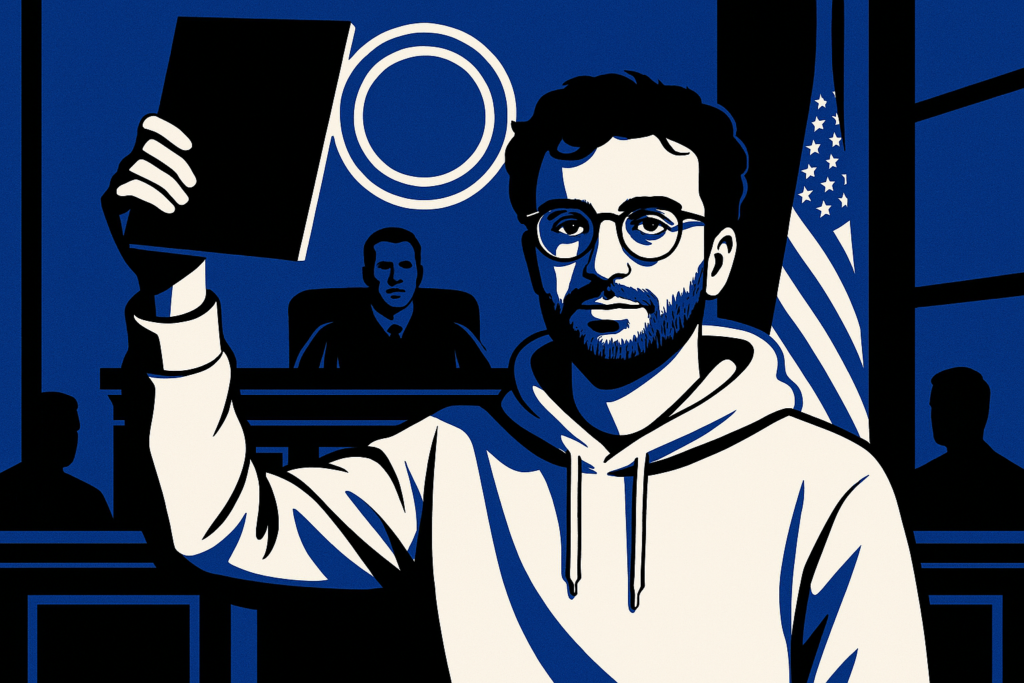The trend continues as two more states issued cease-and-desist letters to Kalshi, ordering the firm to stop offering online prediction markets within their borders.
Both Montana and Maryland sent letters to Kalshi, emphasizing that its event-based contract trading violates their respective state laws.
With those two states on board, the number of jurisdictions barring Kalshi from operating has grown exponentially in recent weeks, with the likes of Nevada, New Jersey, Ohio, and Illinois also issuing cease-and-desist letters. Other states, such as Massachusetts and Connecticut, have opened investigations of their own.
While states have targeted Kalshi and similar operators, a recent Nevada ruling is something of a win for event-based trading. What’s more, Kalshi CEO Tarek Mansour has no intention to go down quietly, making it clear during an event in San Francisco that any individual state law “doesn’t really apply” to Kalshi.
Inside the recent cease-and-desist letters to Kalshi
The Gambling Control Division (GCD) in Montana actually sent its cease-and-desist to Kalshi on March 26, preceding New Jersey. Within its letter, the GCD indicated that its investigation into Kalshi’s activities led to the conclusion that the firm’s operations “constitute illegal gambling.”
As the division noted, state law prohibits all forms of public gambling in Montana unless “specifically authorized by statute.” The GCD included the state’s definitions of “gambling” (“risking any money, credit, deposit, check, property, or other thing of value for a gain”) as well as “sports wagering” (“accepting wagers on sporting events … by any system or method of wagering”).
Kalshi’s event contracts are contingent on the outcome of a sporting event or individual athlete performance. Therefore, the GCD “thus has probable cause to conclude that Kalshi’s offering of ‘event contracts’ constitutes illegal gambling and illegal sports wagering pursuant to Montana law.”
The Maryland Lottery and Gaming Control Commission, meanwhile, sent its letter on Monday and gave Kalshi 15 days to comply with its request. Also including definitions of sports wagering, the commission highlighted that state law specifically includes “exchange wagering” within its definition, elaborating that this facet means “a wager in which a bettor wagers with or against another bettor through a sports wagering licensee.”
The commission also cited a letter Kalshi wrote to the US Commodity Futures Trading Commission (CFTC) in January, wherein Kalshi said its operation is “similar to other event contracts the Exchange lists for trading.” The Maryland regulatory body wrote that the outcome of sporting event determines whether a user is paid.
As such, “the purchase of the Contract is indistinguishable from the act of placing a sports wager.”
Nevada court grants temporary restraining order for Kalshi
Kalshi, of course, has stood at the ready as more states look to ban its offerings. Notably, Kalshi sued the states of Nevada and New Jersey while also requesting a temporary restraining order (TRO) in those markets to allow the firm to continue operations.
While the TRO was waived in New Jersey, allowing the case to be expedited, US District Court Judge Andrew P. Gordon on Tuesday granted Kalshi’s TRO and preliminary injunction in Nevada. Likely, then, Kalshi can continue to operate in the state — at least for the time being.
In a statement to Front Office Sports, a Kalshi spokesperson expressed the company’s gratitude “for the court’s careful attention to this matter and recognition of Kalshi’s status as a CFTC-regulated exchange. On to the next step.”
Kalshi has continued to emphasize that it is not required to oblige state-specific laws, as it operates under the purview of the CFTC. Nevada Rep. Dina Titus, however, sent a letter to the trading commission, urging the group to “exercise its authority … to ensure this unlawful activity does not persist.”
Titus said that companies such as Kalshi use event-based contract trading as “a backdoor way” to skirt state laws as they pertain to sports betting.
Mansour: ‘State law doesn’t really apply’
Speaking at a recent StrictlyVC event in San Francisco last week, Mansour, the CEO of Kalshi, said that his company is “not necessarily very concerned” about states attacking his company and labeling it as an illegal sports betting platform.
Kalshi is “regulated at the federal level,” Mansour said. “The state law doesn’t really apply.”
Mansour blamed a “massive casino lobby that’s unhappy about this” as the catalyst for the wave of cease-and-desist letters landing on his desk. He also shed light on Kalshi’s journey to this point, including a major league battle it won against the CFTC itself, which cleared the way for Kalshi to process over $1 billion in trades based on the outcome of the 2024 political elections.
“We have a license,” Mansour said. “It’s by the CFTC.”
The CEO then added: “If the CFTC tells us to stop, we will absolutely stop. And if they don’t, then we won’t.”




